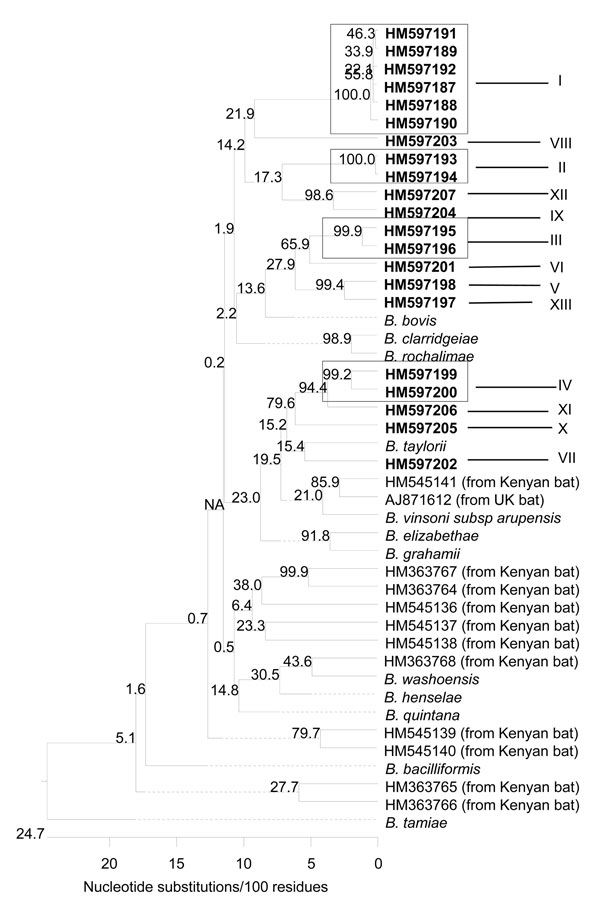Volume 17, Number 7—July 2011
Dispatch
Bartonella spp. in Bats, Guatemala
Figure 2

Figure 2. Phylogenetic relationships of the Bartonella spp. genotypes based on partial sequences of the citrate synthase gene detected in bats from Guatemala, Kenya, United Kingdom, and some reference Bartonella spp. The phylogenetic tree was constructed by the neighbor-joining method, and bootstrap values were calculated with 1,000 replicates. A total of 21 Bartonella genotypes, forming 13 Bartonella phylogroups, were identified in the bats from Guatemala. Each genotype is indicated by its GenBank accession number in boldface; the phylogroups are marked by Roman numerals I–XIII.
Page created: October 05, 2011
Page updated: October 05, 2011
Page reviewed: October 05, 2011
The conclusions, findings, and opinions expressed by authors contributing to this journal do not necessarily reflect the official position of the U.S. Department of Health and Human Services, the Public Health Service, the Centers for Disease Control and Prevention, or the authors' affiliated institutions. Use of trade names is for identification only and does not imply endorsement by any of the groups named above.